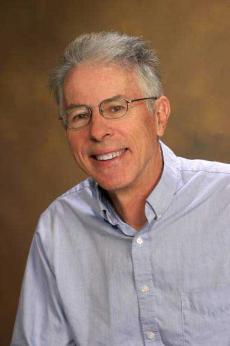The Cal State Long Beach Psychology Department has recently initiated new plans to disassociate itself from controversial psychology professor Kevin MacDonald.
The department is currently considering publishing a statement to confirm its disassociation from MacDonald, with his research and writings on Judaism continuing to garner controversy and be used by publications considered to publicize neo-Nazi and white supremacist ideology.
MacDonald’s three-part series in evolutionary psychology, “A People That Shall Dwell Alone,” “Separation and Its Discontents” and “The Culture of Critique,” was labelled as anti-Semitic and neo-Nazi propaganda in late 2006.
The labels came from the Southern Poverty Law Center (SPLC), a civil rights organization based in Montgomery, Ala., that tracks hate groups. The organization sent a representative to CSULB to interview students and faculty members about MacDonald’s work in November of 2006.
The recent developments within the psychology department to distance itself from MacDonald’s work came after the department’s advisory committee met to discuss his December forum presentation.
Questions were raised regarding the methodology and ethics of MacDonald’s work, which included his trilogy of books as well as his entries in The Occidental Quarterly – which has been described as a “white nationalist” publication – and the online journal VDARE.com.
The three-part book series stimulated the most controversy through its discussion of the influence of Jewish political and social movements on American politics and culture during the 20th century, according to associate professor of anthropology Ron Loewe.
“MacDonald is trying to argue that Jews undermine the foundations of Western society by supporting radical ideologies and radical political movements,” Loewe said.
MacDonald’s work also allegedly discussed “how Jews facilitated the immigration of minorities from southern Europe, and destroyed the whiteness of America,” according to Loewe.
On Tuesday MacDonald replied to a series of questions put to him by psychology professor Martin Fiebert that focused on the four main areas of racism: anti-Semitism, quality of “scholarship” and involvement with and support for extremist groups.
Fiebert’s questions were finally answered after several psychology, history and political science department members sent numerous e-mails to MacDonald requesting that he respond to the inquiries about his research and teachings.
The questions posed to MacDonald revolved around his relationship with J. Philippe Rushton, a professor from the University of Western Ontario, Canada, who has been criticized for his claims that race determines an individual’s abilities and behavior, and that blacks are intellectually inferior because of “smaller brains.”
In an e-mail response sent to Loewe and other CSULB faculty about the questions, MacDonald said that his only referral to Rushton’s work was in a graduate seminar that was not related to racial differences research, and that he would not focus any more of his efforts on the topic at CSULB. In the e-mail, MacDonald wrote, “I see the issue of race differences in intelligence and other traits as hopelessly politicised.”
In another e-mail sent to the Daily Forty-Niner, MacDonald also wrote, “I promised not to teach about race differences in intelligence in order to be able to teach [Psychology] 361.” He also wrote that he is “not happy” about the proposed dissociation of his work by the department.
MacDonald confirmed publishing his claims that the Jewish race was having a negative effect on Western civilization in “The Culture of Critique.”
“Individuals who strongly identified as Jews have been the main motivating force behind several highly influential intellectual movements that have simultaneously subjected Western culture to radical criticism and allowed for the continuity of Jewish identification … Collectively, these movements have called into question the fundamental moral, political, and economic foundations of Western society,” MacDonald wrote in the e-mail sent to Loewe and CSULB faculty.
The Psychology Department Advisory Committee will meet again on Monday to discuss the disassociation statement after concluding that the three current statements already posted on the department website did not provide adequate grounds through which to distance the department from MacDonald’s views.
The three statements, titled “Diversity,” “Misuse of Psychologist’s Work” and “Academic Freedom and Responsibility in Research,” discuss the department’s cultural diversity in teaching, its denouncing of the professor’s work for use as propaganda for racial/ethnic superiority groups, and also the expectation that faculty members whose work is controversial will “state that their views may not represent those of the department.”
The new statement, however, will focus specifically on the department’s disassociation from MacDonald, and is modelled on a similar statement that came from Lehigh University in Bethlehem, Pa.
Produced by the Lehigh Biological Sciences Department, the statement outlined the department’s position on “Evolution and ‘Intelligent Design,'” and reinforced its support of Darwin evolutionary theory while disassociating itself from professor Michael Behe, who supported an alternate “intelligent design” theory.
“While we respect professor Behe’s right to express his views, they are his alone and are in no way endorsed by the department. It is our collective position that intelligent design has no basis in science, has not been tested experimentally and should not be regarded as scientific,” the statement said.


